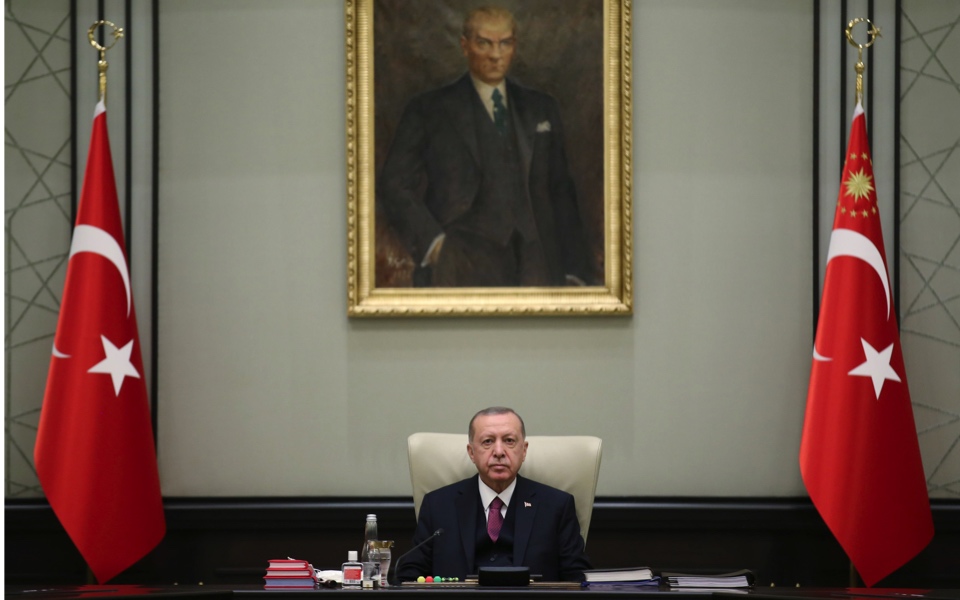Erdogan says nuclear power should either be free for all or banned

Turkish President Recep Tayyip Erdogan on Tuesday said nuclear power should either be free for all states or banned completely, and warned that the “inequality” between states who have nuclear power and who do not undermines global balances.
Turkey signed the Nuclear Nonproliferation Treaty in 1980, and has also signed the 1996 Comprehensive Nuclear-Test-Ban Treaty, which bans all nuclear detonations for any purpose.
Erdogan has hinted in the past that he wanted the same protection for Turkey as Israel, which foreign analysts say possesses a sizable nuclear arsenal.
Israel maintains a policy of ambiguity around the nuclear issue, refusing to confirm or deny its capabilities.
“The position of nuclear power should either be forbidden for all or permissible for everyone,” Erdogan told the United Nations General Assembly annual gathering of world leaders.
In his speech, Erdogan also called on the international community to help securing peace and safety in the Syrian city of Idlib, adding that establishing a "safe zone" in northern Syria will save millions of lives.
Turkey, which hosts 3.6 million Syrian refugees, controls parts of northern Syria where it says 350,000 Syrians have already returned.
Turkey plans to resettle 1 million refugees in northern Syria and has warned that it may reopen the route for migrants into Europe if it does not receive adequate international support for the plan.
Turkey has been angered by US support for Kurdish-led forces, which fought Islamic State in Syria. It considers the Kurdish YPG fighters a terrorist organization and wants them removed from more than 400 km (250 miles) of border.
NATO allies Turkey and the United States have started joint land and air patrols along part of the border strip, but Ankara says Washington is moving too slowly to establish a sufficiently large safe zone to push Syrian Kurdish forces from the border. [Reuters]





